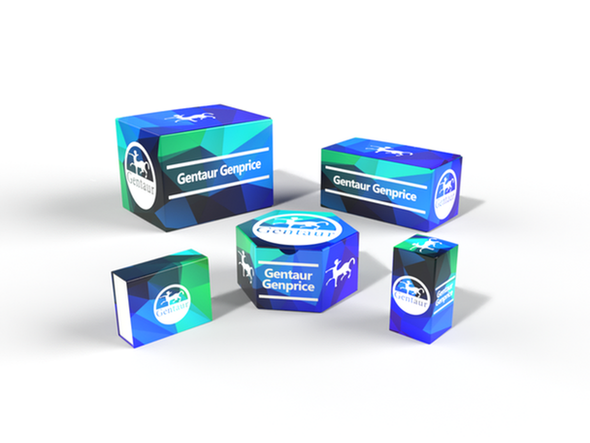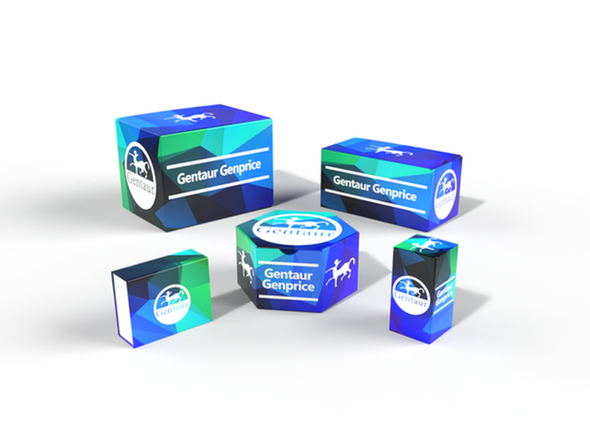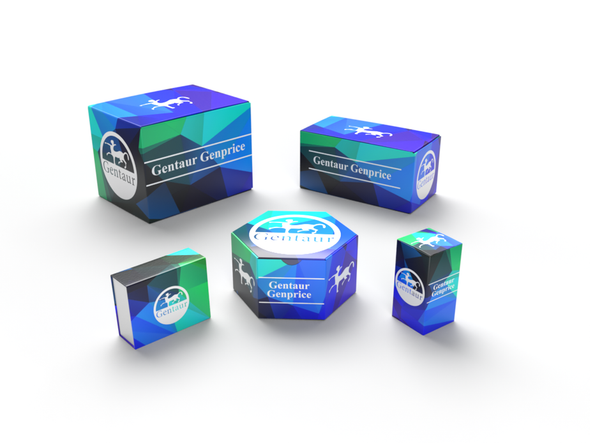740
Rat Bile acid receptor (NR1H4) ELISA Kit | AE62860RA
- SKU:
- 740-AE62860RA
- Availability:
- Usually ships in 5 working days
Description
Rat Bile acid receptor (NR1H4) ELISA Kit | AE62860RA | Gentaur UK, US & Europe Distribution
Species Reactivity: Rat (Rattus norvegicus)
Abbreviation: NR1H4
Alternative Name: BAR; FXR; HRR-1; HRR1; MGC163445; RIP14; farnesoid X receptor
Application: ELISA
Range: 0.156-10 ng/mL
Sensitivity: 0.053 ng/mL
Intra-Assay: ≤6.3%
Inter-Assay: ≤7.8%
Recovery: 0, 83
Sample Type: Serum, Plasma, Other biological fluids
Detection Method: Sandwich
Analysis Method : Quantitive
Test Principale: This assay employs a two-site sandwich ELISA to quantitate NR1H4 in samples. An antibody specific for NR1H4 has been pre-coated onto a microplate. Standards and samples are pipetted into the wells and anyNR1H4 present is bound by the immobilized antibody. After removing any unbound substances, a biotin-conjugated antibody specific for NR1H4 is added to the wells. After washing, Streptavidin conjugated Horseradish Peroxidase (HRP) is added to the wells. Following a wash to remove any unbound avidin-enzyme reagent, a substrate solution is added to the wells and color develops in proportion to the amount of NR1H4 bound in the initial step. The color development is stopped and the intensity of the color is measured.
Product Overview: The farnesoid X receptor (FXR), is a nuclear hormone receptor with activity similar to that seen in other steroid receptors such as estrogen or progesterone but more similar in form to PPAR, LXR and RXR. FXR is encoded by the NR1H4 gene.FXR is expressed at high levels in the liver and intestine. Chenodeoxycholic acid and other bile acids are natural ligands for FXR. Like other steroid receptors, when activated, FXR translocates to the cell nucleus, forms a dimer (in this case a heterodimer with RXR) and binds to hormone response elements on DNA which elicits expression or transrepression of gene products.
Stability: The stability of ELISA kit is determined by the loss rate of activity. The loss rate of this kit is less than 5% within the expiration date under appropriate storage condition. The loss rate was determined by accelerated thermal degradation test. Keep the kit at 37°C for 4 and 7 days, and compare O.D.values of the kit kept at 37°C with that of at recommended temperature. (referring from China Biological Products Standard, which was calculated by the Arrhenius equation. For ELISA kit, 4 days storage at 37°C can be considered as 6 months at 2 - 8°C, which means 7 days at 37°C equaling 12 months at 2 - 8°C) .










